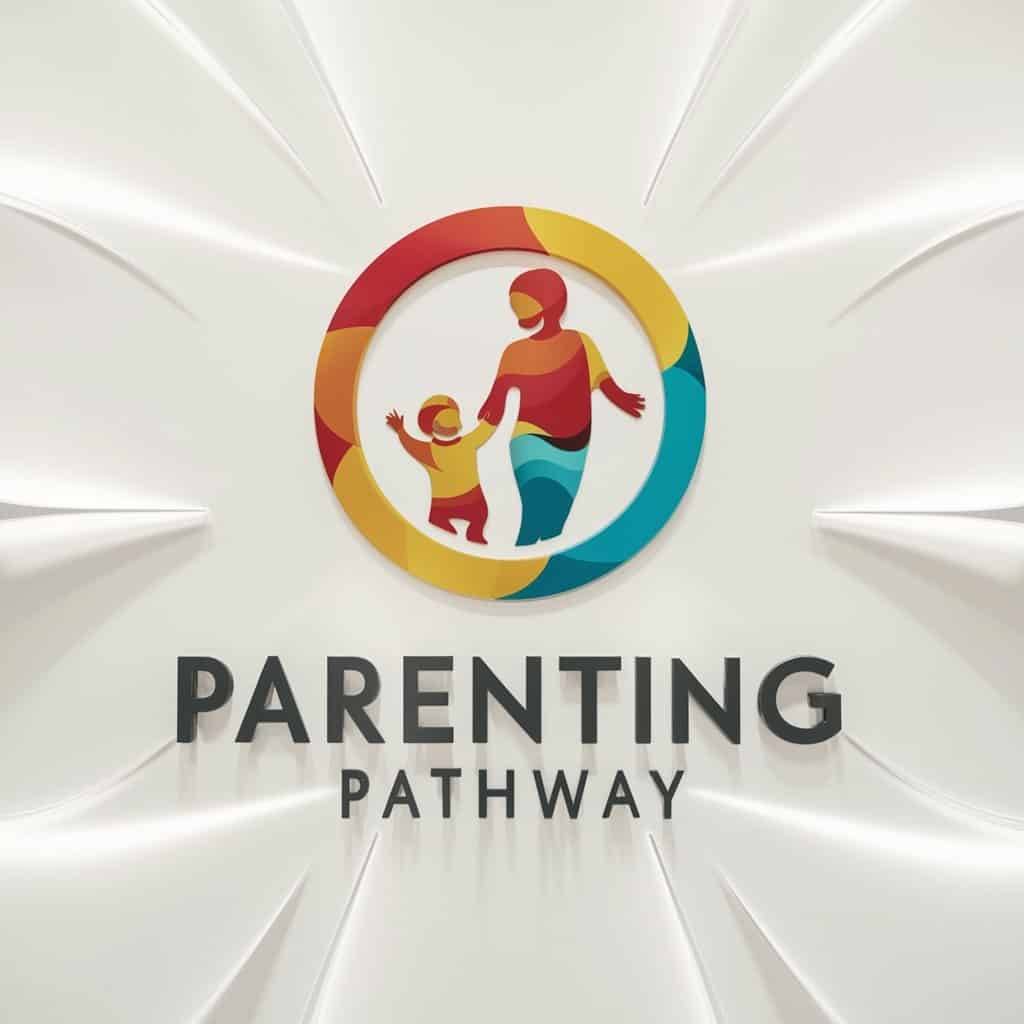A Comprehensive Guide to Finding a Child Psychologist in the USA
Back to Blog
Understanding the Role of a Child Psychologist
A child psychologist is a mental health professional who specializes in diagnosing and treating various psychological issues in children and adolescents. These professionals possess advanced degrees, typically a Doctorate in Psychology (Ph.D. or Psy.D.), and are trained in specific techniques to understand the unique developmental needs and challenges faced by younger populations. Their education involves extensive coursework in developmental psychology, child assessment, therapy techniques, and ethics, as well as supervised clinical training.
Child psychologists play a crucial role in addressing a variety of mental health complexities that can arise during childhood and adolescence. Common issues that they help with include behavioral problems, such as aggression, defiance, and social difficulties; emotional challenges, such as anxiety, depression, and excessive mood swings; and developmental disorders, including ADHD and autism spectrum disorder. By employing different therapeutic methods, including cognitive-behavioral therapy and play therapy, child psychologists aim to facilitate healthy emotional development and coping strategies tailored to the child’s age and circumstances.
Furthermore, parents often seek the expertise of a child psychologist when they notice concerning behaviors that hinder their child’s overall well-being. Parents can expect the process to begin with an assessment, where the psychologist evaluates the child’s emotional and behavioral issues through interviews, standardized tests, and observations. Following the assessment, the psychologist will typically develop a treatment plan that may include individual therapy, family counseling, or recommendations for school-based interventions. Ultimately, the goal of a child psychologist is to support children in overcoming their challenges, fostering resilience, and promoting mental health, establishing a positive foundation for their future.
Signs Your Child Might Need Psychological Help
Identifying when a child may require psychological assistance is crucial for their overall development and well-being. Parents should be vigilant for various signs that suggest their child may benefit from professional support. One of the most significant indicators is notable behavioral changes. If a child exhibits persistent irritability, aggressive behavior, or extreme mood swings, it may signal underlying emotional or psychological issues that necessitate the intervention of a child psychologist.
Academic struggles can also be a crucial sign. A previously high-achieving child suddenly experiencing difficulty in school—such as declining grades, lack of focus, or excessive frustration with assignments—may indicate the need for psychological evaluation. Such challenges can stem from anxiety, learning disabilities, or emotional conflicts that a child psychologist can help address.
Withdrawal from social activities is another red flag. Children who once engaged actively with peers may begin to isolate themselves, refusing invitations or showing reluctance to participate in group activities. This withdrawal could be a sign of social anxiety, depression, or other emotional challenges that warrant professional attention. It is essential for parents to remain observant and communicate openly with their children about their feelings and experiences.
Emotional distress is often manifested through excessive crying, moodiness, or expressions of hopelessness. If a child displays persistent sadness or an inability to cope with everyday stressors, seeking help from a qualified child psychologist can provide valuable support. Early intervention is critical to address these emotional challenges before they evolve into more significant issues. Recognizing these signs early not only facilitates timely intervention but also plays a vital role in fostering a child’s mental health and resilience.
How to Start Your Search for a Child Psychologist
Finding a qualified child psychologist is an essential step in addressing a child’s mental health needs. The first step in your search should involve identifying specific needs or concerns related to your child. Consider the reasons you are seeking a psychologist. Is it anxiety, depression, behavioral issues, or something else? Understanding these issues will help you articulate your concerns and expectations clearly, ensuring that you find someone who specializes in those areas.
Once you have assessed your child’s needs, the next step is seeking referrals. Talk to your pediatrician, school counselor, or trusted friends and family members who may have experience with child psychologists. Personal recommendations can often lead you to reputable professionals. Don’t hesitate to ask questions about their experiences, such as the psychologist’s approach, the effectiveness of the treatment, and how comfortable their child felt during the sessions.
After gathering referrals, it is vital to conduct thorough research on potential child psychologists in your area. Begin by checking their credentials, such as education, licensing, and certifications. Many psychologists have profiles on professional websites that outline their specialties and therapeutic approaches. Pay close attention to reviews and testimonials from other parents, as they can offer valuable insights into what you and your child can expect from therapy.
Additionally, consider the logistics of your search. Look for psychologists who are conveniently located and have availability that matches your family’s schedule. Some child psychologists may also offer teletherapy options, which can provide greater flexibility. As you compile a shortlist of candidates, prepare a list of questions to ask during initial consultations, helping you determine the best fit for your child’s unique personality and needs.
Utilizing Online Resources and Directories
Finding a suitable child psychologist can often feel overwhelming for parents, particularly when seeking specialized care in a vast landscape of options. Fortunately, the advent of online resources and directories has simplified this process significantly. Websites such as Psychology Today and GoodTherapy offer comprehensive listings of mental health professionals, including those who specialize in child psychology. These platforms not only allow users to search for psychologists based on various criteria—such as location, specialty, and insurance acceptance—but also provide informative profiles that outline each professional’s qualifications and methodologies.
On Psychology Today, for instance, parents can explore an extensive database of licensed child psychologists. The search can be refined using filters for specific needs, such as behavioral issues, learning difficulties, or emotional challenges. Each profile often includes detailed information about the therapist’s background, therapy approaches, and client reviews, providing valuable insights that aid in making an informed decision.
GoodTherapy serves as another valuable resource, focusing on therapists who adhere to ethical practices and ongoing education. The platform emphasizes finding a child psychologist who aligns with a family’s values and expectations. Additionally, local mental health organizations and community health resources may offer online directories or referral services, further enhancing parents’ options. It is essential to check these resources in conjunction with reviews and recommendations from other families, as personal experiences can provide deeper insight.
Overall, leveraging online resources and directories can significantly reduce the stress associated with selecting a child psychologist. By utilizing these tools effectively and reviewing each potential therapist’s credentials, parents can ensure they are making informed choices that prioritize the wellbeing of their child.
Evaluating Potential Child Psychologists
Choosing the right child psychologist is a crucial step in ensuring that your child receives appropriate mental health support. When evaluating potential candidates, several criteria should be considered to ensure that the psychologist is well-suited to your child’s needs. One of the foremost aspects to review is the psychologist’s qualifications. Credentials such as a Ph.D. or Psy.D. in psychology, along with relevant licenses to practice in your state, should be confirmed. This ensures that the professional has undergone the necessary training and adheres to ethical guidelines.
Experience is another significant factor. Look for psychologists who specialize in child psychology and have a solid track record of working with children similar in age and experience to your child. Specialties can vary widely; some psychologists focus on specific issues such as anxiety, ADHD, or trauma. Understanding a psychologist’s specialty can help align their skills with your child’s particular needs. Additionally, inquire about their therapeutic approaches. Cognitive-behavioral therapy (CBT), play therapy, and family therapy are just a few methods that a child psychologist may employ. Each approach has different benefits, depending on your child’s situation.
Interviews are an important part of the evaluation process. Speak directly with potential psychologists and ask open-ended questions to gauge their philosophy towards therapy and communication style. Questions such as “What techniques do you use with children?” or “How do you involve parents in the therapy process?” can provide valuable insights. It is also essential that the psychologist establishes a connection with your child, as a trusting relationship is crucial for effective therapy. Observing your child’s comfort level during initial interactions can further aid in your decision-making process.
The Importance of Getting Referrals and Recommendations
When seeking a child psychologist, understanding the importance of referrals and recommendations cannot be understated. The process of finding a suitable therapist for a child often begins with trusted sources such as pediatricians, educators, and parent support groups. These professionals have extensive experience and knowledge of the mental health field and can offer valuable insights into which practitioners may be the most effective for your child’s particular needs.
Pediatricians are typically the first touchpoint in a child’s healthcare journey. They regularly observe developmental milestones and behavioral challenges, enabling them to provide tailored referrals based on individual cases. A pediatrician’s recommendation carries weight due to their medical training and their ongoing relationship with the family. Similarly, schools can also be a resource; teachers and school counselors often interact closely with children and may notice social or emotional difficulties that parents might overlook. Their observations can lead to effective referrals to child psychologists who specialize in treating the specific issues encountered in academic settings.
Parenting groups and community forums represent another valuable avenue for finding referrals. These platforms allow parents to share their experiences transparently, thereby fostering a sense of community and support. Engaging in discussions with other parents can reveal personal recommendations that might not be accessible through conventional channels. The benefit of hearing firsthand accounts can guide decision-making, ensuring a parent feels confident in their choice of child psychologist.
In summary, leveraging referrals and recommendations from trusted sources is crucial in the journey to find a qualified child psychologist. This approach not only saves time but also helps ensure that the therapist selected is experienced and well-regarded, ultimately enhancing the chances of a successful therapeutic experience for the child.
What to Expect During the First Appointment
When attending the first appointment with a child psychologist, it is essential to understand the structure and nature of this initial consultation. The primary objective is to create a safe and welcoming environment for the child. Typically, the session begins with the psychologist introducing themselves and explaining their role in a manner that is age-appropriate and understandable for the child. This helps to alleviate anxiety and allows for a more open interaction.
Initial assessments play a crucial role in the first appointment. The psychologist may conduct various methods to understand the child’s emotional and psychological well-being. This could include informal conversations, games, or drawing activities designed to help the child express themselves without the pressure of a formal questioning format. Such activities are instrumental in gathering insights into the child’s feelings, behaviors, and thoughts.
Parents are encouraged to actively participate in the session by sharing relevant background information about the child’s development, significant life events, and any behavioral concerns they may have observed. This information is invaluable for the psychologist in formulating a tailored approach for the child. Parents should come prepared with notes or questions they wish to discuss, as this can enhance communication and provide better context for the psychologist.
It is common for the first appointment to conclude without a definitive diagnosis or treatment plan, as the psychologist will require additional sessions to gather more in-depth information. However, expectations should be set for a follow-up meeting to discuss the findings and suggested next steps. Overall, the first meeting is a vital opportunity for both the child and parents to engage with the psychologist and begin their journey toward improved mental health.
Understanding Treatment Approaches and Therapies
When seeking a child psychologist in the USA, it is essential to consider the various treatment approaches and therapies available to address a child’s specific needs. Each method has its strengths and is tailored for different conditions, enabling a comprehensive approach to psychological well-being. Among the most commonly used therapies are Cognitive Behavioral Therapy (CBT), play therapy, and family therapy.
Cognitive Behavioral Therapy is a structured, time-limited approach that focuses on altering negative thought patterns and behaviors. It has been shown to be particularly effective for children struggling with anxiety disorders, depression, and ADHD. By encouraging children to identify and challenge their negative thoughts, CBT provides essential tools for self-awareness and coping strategies, ultimately leading to improved emotional regulation.
Another significant therapeutic approach is play therapy, which leverages the natural way children express themselves. Through play, psychologists can gain insight into a child’s emotions, thoughts, and struggles. This approach is beneficial for children who may not articulate their feelings verbally or who have experienced trauma. Play therapy can help them process their experiences, build coping mechanisms, and foster relational skills in a safe environment.
Family therapy is also an essential component of treatment, especially when issues extend beyond the individual child. By involving family members in therapy sessions, psychologists can address family dynamics, improve communication, and resolve conflicts that may impact a child’s mental health. This holistic approach emphasizes the interconnectedness of family relationships, often leading to more sustainable improvements in a child’s overall well-being.
Choosing the right treatment approach depends on the individual child’s needs, challenges, and personality. Consulting with a child psychologist can help determine the most effective methods for specific issues, ensuring that the selected therapies maximize the child’s potential for healing and growth.
Continuing Support and Monitoring Progress
Effective treatment of a child’s psychological challenges does not end once therapy sessions begin. Ongoing communication between parents and the child psychologist is vital for facilitating a successful therapeutic experience. This collaboration helps parents stay informed about their child’s progress, enabling them to support their child’s development better. Parents should feel empowered to ask questions and express any concerns regarding the child’s emotional or behavioral changes. Such open dialogue fosters a trusting relationship and helps ensure that the treatment remains aligned with the child’s evolving needs.
Furthermore, it is essential to establish strategies for monitoring a child’s progress. One effective approach is scheduling regular check-ins with the child psychologist, allowing parents to discuss observations and any fluctuations in their child’s behavior outside the therapy sessions. These discussions can highlight improvement areas and identify persisting challenges that may require additional attention during therapy. By maintaining an ongoing assessment of the child’s emotional health, parents can not only keep track of improvements but also reinforce the therapeutic strategies discussed in sessions.
Involving parents in the therapeutic process can significantly enhance a child’s treatment efficacy. Many psychologists provide parents with tools and resources that can be used at home—such as worksheets, coping strategies, or behavioral reinforcement techniques. These resources aid parents in reinforcing what the child learns in therapy, making it easier for them to practice new skills and strategies in a natural setting. This multipronged approach helps create a consistent environment that can foster emotional growth and resilience.
In conclusion, maintaining a strong connection between parents and the child psychologist plays a crucial role in facilitating ongoing support and monitoring progress. By working together as a team and using consistent strategies, parents can greatly contribute to the child’s overall therapeutic success, ensuring that they thrive emotionally and socially. Continuous engagement is key in navigating the complexities of a child’s emotional development.




Leave a Reply